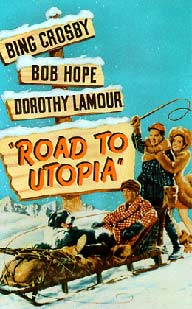|
LITR 5439 Literary & Historical Utopias |
|
Munira Omari
June 26, 2013
Teaching and Understanding Utopia and Dystopia
Since
my childhood, I have always dreamt of a perfect life like the ones seen in
movies, TV shows or novels. It is the thought of having a perfect life where
racism and inequality do not exist that made it all the more exciting and
wonderful. However, as I grew older, I realized that life is not what it seems.
I have lived my childhood believing in something that did not exist, hoping that
someday I would be able to achieve it. But since taking this class, I have
become obsessed with the thought of utopia only being a controlling and hopeless
land with no chance for change or improvement. A barbaric place where your
opinion is not valued; however, there are many other utopias that are aspiring
and growing, such as Herland, where
the lack of many necessities caused the population to adapt and create a perfect
world of their own. Although utopian
literature may serve as a solution to many societal problems, it continues to
prove to be ineffective in many cases.
Through my reading of former essays, I have found that many
students shared my views. For one, Katie Parnian’s midterm “The Perfect Utopia:
a Contradiction in Terms,” was fascinating because her opinions contradicted
some values of a utopia. Parnian points out in her midterm that “utopias are
developed to serve as a remedy to a particular culture and age’s social,
religious, political and economic needs.” They supposedly happen in order to
make a better life with better values. However, if they are not fulfilled in the
best way possible, that utopia would most likely become a dystopia. As hard as
it seems, it is impossible to achieve perfection because “perfection is only for
God.” What I also thought was interesting about her essay is, “Second, utopian
ideals are not achievable for the same reasons Western notions of idealized
notions of love, the ‘and they live happily ever after’ notion of marriage are
not sustainable.” Reading Katie’s idea about utopia opened my eyes to many
things that I had believed in prior to reading her essay. For example, I always
thought that marriage life was “a fairytale”; however, there are problems and
misunderstanding that happens. Life is not perfect, and that applies to utopias
as well.
While Katie’s argument has some validity, another student,
Chrissie Johnston views utopia as an effective establishment for a society.
With
the previous being said, it led me to another point that Johnston pointed out in
her midterm. She argues the teaching of dystopias in high school. Her thought on
the matter caught my interest. I always believed that teaching children about
dystopia would cause them to lose hope in life. It would also give them a sense
of insecurity about their own life. However, she points out that teaching
dystopias helps students’ individuality and self esteem. Dystopias help the
student relate to the protagonist and gives them a sense of security and
freedom. Students can always relate to a hero.
For my last reviewed essay, I read Courtney Heintzelman’s
research post, “Utopias, Dystopias and
The Lottery.” I have never read that novel before, but I was fascinated with
the plot. The idea of sacrificing a person every year for good harvest is
something so barbaric and dystopian. It seemed to me that this novel is a
perfect candidate for dystopian novels as she answered in her post. Although
this society might be considered as a utopia for the villagers and the family of
the victim, it is a dystopia for Tessie, who feels betrayed by the belief of a
good harvest after being picked to be sacrificed. This notion follows the idea
that Katie mentioned in her midterm with a little twist, utopias are created as
a cure for a specific culture to provide certain requirements needed by the
community, and in this case, the need is vegetation.
In sum, I believe that these three articles are connected somehow by the idea of a utopia and a dystopia. In Katie and Chrissie’s midterms, they discuss their thoughts on utopia and dystopia; whereas, in Courtney’s research post, the ideas are connected to make it complete. As utopias are always created for a reason “to make life better,” they somehow become a dystopia. In this case, Courtney’s research post united both ideas. And by teaching both in schools, students are expanding their knowledge and learning.


